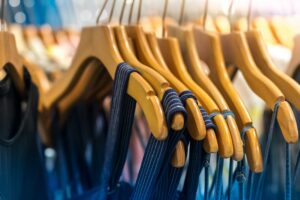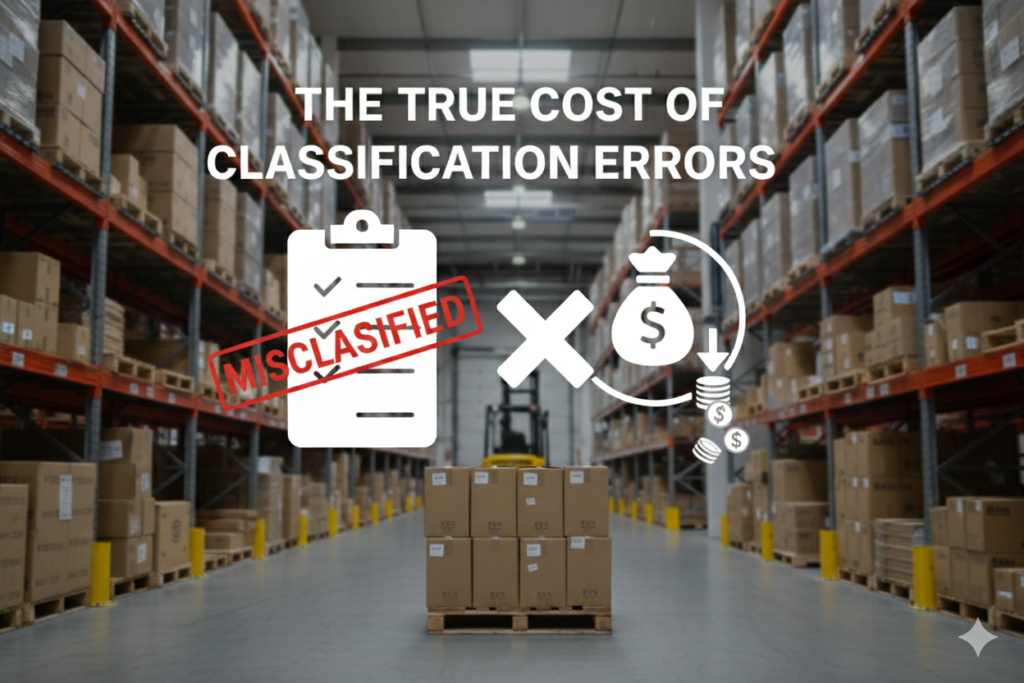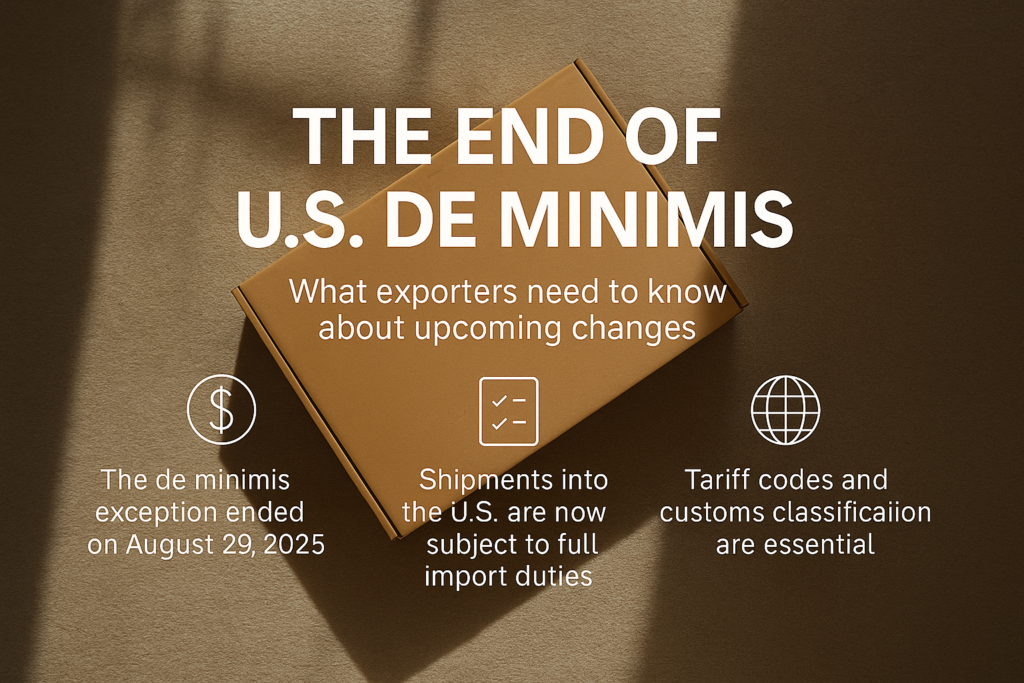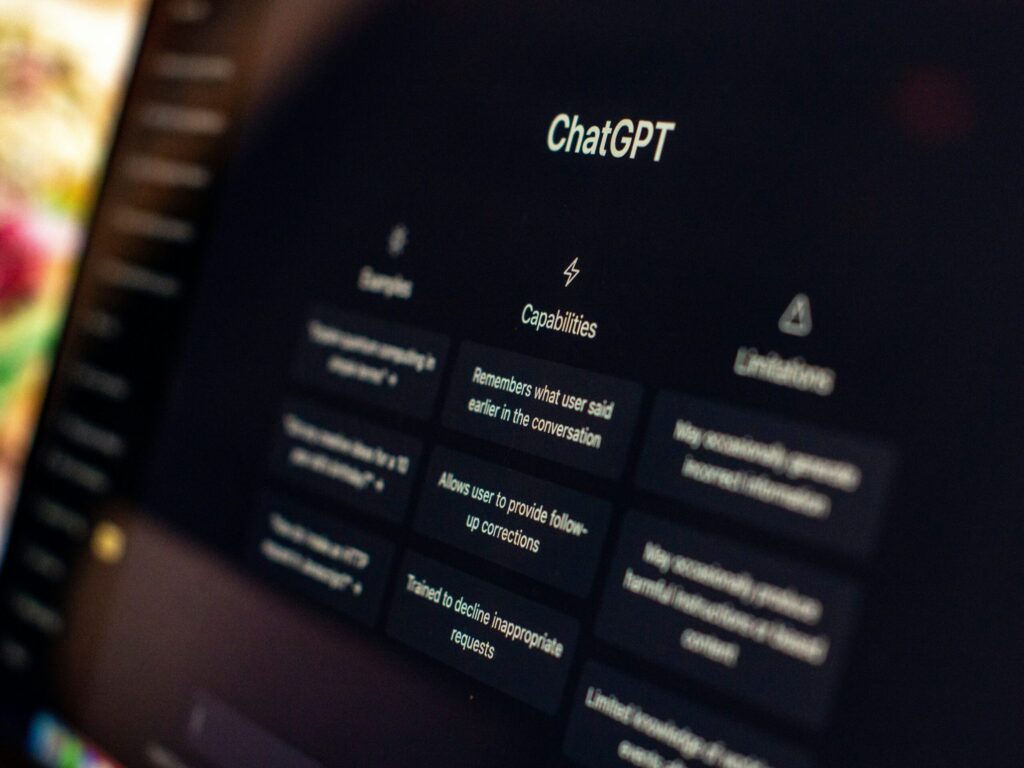How TariffTel transforms your approach to customs classification
Topics

International trade today is a dynamic and evolving world to operate in. Whichever sector you are in from retail, consumer goods to automotive and manufacturing, businesses are looking to implement transformative technology solutions that will support them in automating complex processes, freeing up their team’s time, reducing human errors and introducing cost savings.
A game-changer for many businesses has been the introduction of a customs classification system such as TariffTel. This solution offers unbeatable accuracy and compliance standards for assigning tariff codes to goods and unprecedented opportunities to streamline operations. Here we look at the impact implementing a customs classification system has had on businesses looking to improve compliance standards and the transformation in operations that they have experienced as a result.
We specifically look at how boohoo group plc transformed their classification approach with TariffTel.
Common challenges businesses face with classification
Data management
 Data management is one of the biggest challenges many companies face across their supply chain. Customs classification requires meticulous attention to detail, with accurate and up-to-date information about a product being paramount. Ensuring the seamless flow of data across various systems and platforms while maintaining data integrity can be a daunting task for many businesses. The master data held on each product can vary significantly and gathering it in the first place can be tricky. You may be holding this data on spreadsheets which you need to manually maintain, and it may be recorded ad hoc from the scant information provided by your suppliers or on documentation. This can all lead to data integrity challenges. When you improve this data capture process at the start of classification using a customs classification solution that makes data capture and storage easy, many of the challenges go away. TariffTel is a unique system, trusted by businesses such as Primark and ASDA, for its innovative approach to engaging with your suppliers. By gathering essential product data at source with suppliers who know your products best, the initial data used to classify can be verified and relied upon. The ‘make-up’ of a product, be it fabric composition, fat or sugar content with food products or metal type with car parts, are all crucial pieces of information that need to be shared and regularly updated on your customs classification system.
Data management is one of the biggest challenges many companies face across their supply chain. Customs classification requires meticulous attention to detail, with accurate and up-to-date information about a product being paramount. Ensuring the seamless flow of data across various systems and platforms while maintaining data integrity can be a daunting task for many businesses. The master data held on each product can vary significantly and gathering it in the first place can be tricky. You may be holding this data on spreadsheets which you need to manually maintain, and it may be recorded ad hoc from the scant information provided by your suppliers or on documentation. This can all lead to data integrity challenges. When you improve this data capture process at the start of classification using a customs classification solution that makes data capture and storage easy, many of the challenges go away. TariffTel is a unique system, trusted by businesses such as Primark and ASDA, for its innovative approach to engaging with your suppliers. By gathering essential product data at source with suppliers who know your products best, the initial data used to classify can be verified and relied upon. The ‘make-up’ of a product, be it fabric composition, fat or sugar content with food products or metal type with car parts, are all crucial pieces of information that need to be shared and regularly updated on your customs classification system.
Regulatory landscape
Another challenge is navigating the regulatory landscape. Customs regulations are constantly evolving, with new requirements and tariff code updates and changes introduced by the World Customs Organisation regularly. Businesses need to factor in an approach that ensures they keep up to date with these changes and ensure compliance at all times. Being caught out with a tariff code change can have disruptive consequences across your supply chain. One of the main benefits of a solution such as TariffTel is that it is constantly maintained by our customs experts. Any changes to the Tariff are reflected within our system and communicated to clients as soon as the information becomes available, preventing the risk of misclassification.
Assuming one size fits all
 Many businesses mistakenly think that a single tariff code can apply universally to a specific product. When in reality, tariff codes are highly detailed and specific, often requiring a thorough understanding of the product’s composition, intended use, and other factors. This is where human input and interpretation of the Harmonised System is vital and why having access to a team of customs classification experts is vital. It is also why AI tools can fail in assigning the correct code as they take a broad-brush approach to the rules, rather than considering every detail which affects the decision like a solution such as TariffTel. Indeed, small variations to a product can affect classification and this nuance is often missed by AI tools which lack the knowledge and interpretive skill gained from the various sources of information involved in classification.
Many businesses mistakenly think that a single tariff code can apply universally to a specific product. When in reality, tariff codes are highly detailed and specific, often requiring a thorough understanding of the product’s composition, intended use, and other factors. This is where human input and interpretation of the Harmonised System is vital and why having access to a team of customs classification experts is vital. It is also why AI tools can fail in assigning the correct code as they take a broad-brush approach to the rules, rather than considering every detail which affects the decision like a solution such as TariffTel. Indeed, small variations to a product can affect classification and this nuance is often missed by AI tools which lack the knowledge and interpretive skill gained from the various sources of information involved in classification.
A good example of how this can affect duty costs is the US classification of a woman’s knitted, cropped, blouse-like garment made using cotton. Many AI systems we have tested would classify this garment to heading 6106.10.0010, driving a duty of 19.7%. However, as the garment is cropped it is precluded from this heading, and instead would be classified to 6114.20.0010 where the duty is 10.8%, a notable 8.9% lower than the initial classification. This is the kind of interpretive work which is built into the TariffTel system, where our experienced team utilise not only the Tariff books, but also review the explanatory notes when assigning tariff codes taking into account various construction types and material combinations.
How boohoo transformed their classification with TariffTel
 We have supported many businesses in expanding into new overseas markets and one of the those businesses is fashion retailer, boohoo group plc. In 2022, boohoo’s aim was to boost sales in the US and streamline the delivery of its fashion products to their new US distribution centre from the UK which was currently taking 8-10 days to arrive from the UK. Our TariffTel system supported them in their new approach to customs classification, prioritising customs compliance and accuracy.
We have supported many businesses in expanding into new overseas markets and one of the those businesses is fashion retailer, boohoo group plc. In 2022, boohoo’s aim was to boost sales in the US and streamline the delivery of its fashion products to their new US distribution centre from the UK which was currently taking 8-10 days to arrive from the UK. Our TariffTel system supported them in their new approach to customs classification, prioritising customs compliance and accuracy.
Their first challenge was to quickly and accurately classify thousands of SKU’s, a complicated task given they stored only partial product master data. Further difficulty lay with the complexities of the US customs controls which vary significantly to the UK.
In a short space of time, the team achieved a 100% compliance record on 20,000 SKUs, transforming the way US operations and classifications were conducted. The initiative reduced transit times, enabling boohoo group to fulfil demand more precisely in the growing US market. Read more about how boohoo transformed classification with TariffTel.
How can a customs classification solution bring change to your business
TariffTel’s combination of customs data and our unrivalled team expertise create a precision solution for every business prioritising trade efficiency and growth.
By leveraging the information already contained within your business and combining our customs experts’ industry knowledge, we offer unbeatable efficiency, accuracy, cost-savings and compliance standards in tariff code classification.
With TariffTel You can:
- Integrate crucial supplier data about your products and collate accurate product master data – this is unique to TariffTel and crucial for accurate classification. Unlike other solutions, TariffTel engages with suppliers to obtain very specific information including variations by product size, net weight, fabric composition, product images and other supporting documentation
- Keep up to date with changing tariff codes. TariffTel provides alerts and notifications the minute your HS codes change due to central updates – never be caught out again with out-dated codes
- Rely on accurate source data for a fully auditable trail. Often teams are faced with classifying items using poor and insufficient data, or relying on codes provided by suppliers. TariffTel enables the capture of relevant data at source and stores information in a centralised, secure data hub, with access to a full audit trail.
If you want to find out more about a tariff code solution that’s right for your business or want to learn how your business could benefit from TariffTel, get in touch with our team.
Other Useful Resources
When misclassification costs
A £4.7 million liability for aluminium foil in the UK. Eight-figure fines and federal prison sentences for tariff fraud...
How to navigate tariffs after the end of de minimis?
The end of the US de minimis exemption on 29 August 2025 is the start of a new cross-border trade policy for UK and EU b...
Can ChatGPT give you an accurate tariff code? (and what to do instead)
You may be inclined to think that sourcing the correct tariff code for a product is as simple as asking ChatGPT. If you ...



